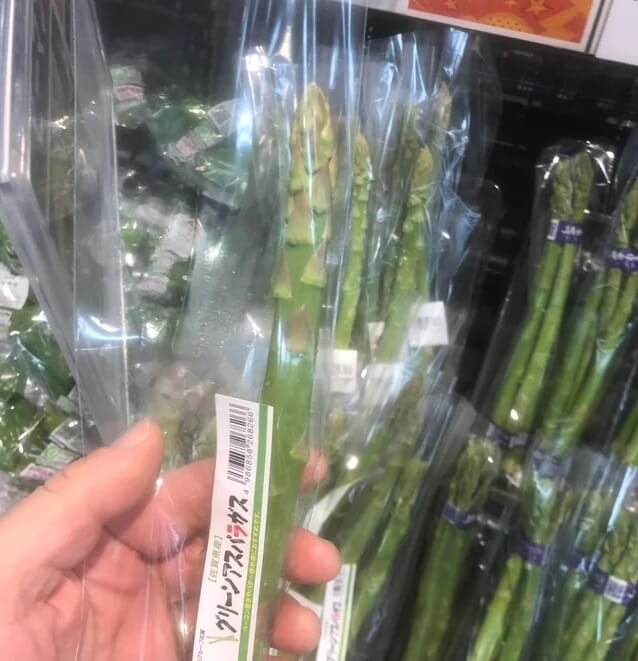Awareness of the harm caused by single-use plastics has risen significantly, but plastics are still produced at a record rate.
Grocery stores are a particularly discouraging player in this chain, as it can be nearly impossible to buy even a week's worth of food without taking home some plastic.
In 2021, a Redditor shared a photo of a single piece of asparagus for sale. Strange, but okay. The problem? It was wrapped in plastic.

The asparagus was unusually large, though it certainly was not enough for one serving of vegetables.
"For the equivalent of about 80 cents you can buy yourself one piece of asparagus," the original poster wrote. "To be fair it is the thick kind … but come on Japan!!! This kind of wasteful packaging mixed with what can only be a good idea for folks who live alone (which there are a lot of over here) is rampant in Japan. I know I'm used to super sized meals but there must be a middle ground? Even if I lived alone I think I'd like at least two (if not three) stalks to eat with a meal!"
In addition to the many single stalks available, the user's photo showed more plastic packaging containing just a few stalks each.
Plastic packaging is a major contributor to the overheating of our planet. It is produced from dirty energy sources and accounts for 36% of all plastics, and 85% goes to landfills or becomes unregulated waste, according to the United Nations Environment Programme.
Since many recycling programs are broken, only a small percentage (5% in the United States) of single-use plastics are recycled. Plastic pollution mostly winds up in bodies of water, where it continues to harm the environment for centuries.
With the proliferation of production in the 1990s, plastic waste became too abundant to be recycled due to a lack of processing facilities. This means that when it is "recycled," it is more likely transported elsewhere as trash, burned, or melted.
Further, the cost of recycling falls on the consumers rather than the producers.
The industry is making inroads with innovations in recyclability, compostability, and reusability, but grocers and consumers must help phase out plastics to protect human and environmental health.
In this case, the plastic wrapping was absurd and unnecessary.
"What in the world do you do with 1 asparagus?" one commenter noted. "You need at least 3."
Another provided the best solution: "Why not just put them loose in a bin and charge by weight? They do it with haricots, why not asparagus?"
Join our free newsletter for easy tips to save more, waste less, and help yourself while helping the planet.








